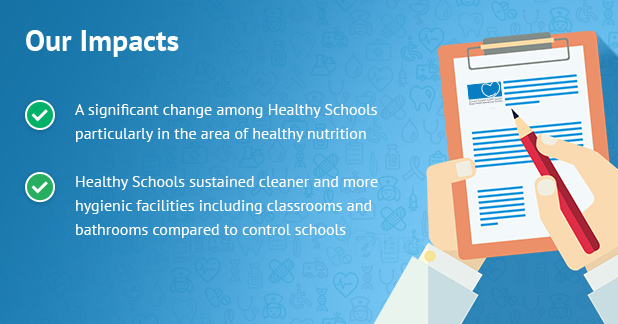The Healthy Schools program is a
national accreditation program implemented in collaboration with the Ministry
of Health (MoH) and the Ministry of Education (MoE) since 2008, with an aim to
create a health-promoting environment within schools, reflecting positively on
students’ physical and social growth as well as their academic performance.
The program is based on a set of
international standards established by UNICEF and Johns Hopkins and Family
Health Media Partners Foundation, which have been
adapted to the national context. It is implemented in cooperation with school
staff to create a clean, safe, and healthy school environment, increase health
awareness, and improve health services provided to students and school staff
alike. Additionally, the program promotes healthy food choices, physical
activity, and implements public health laws such as banning smoking within
school boundaries.
The program has been modified to include two separate tracks based on
the readiness of the school’s infrastructure: The Healthy Schools track and the
Health Promoting Schools track. RHAS and its partners supervise the Healthy
Schools during the program’s implementation period, which lasts for five
academic years. The school’s performance is evaluated annually according to the
criteria set for each year and level, where the school is accredited as a
Healthy School or a Health-Promoting School using a three-tier evaluation
system (bronze, silver, and gold / stage 1, 2, and 3). Accreditation extends for
two consecutive years in the Healthy Schools course, during which accredited
schools are monitored to ensure that the standards continue to be implemented
on an ongoing basis.
